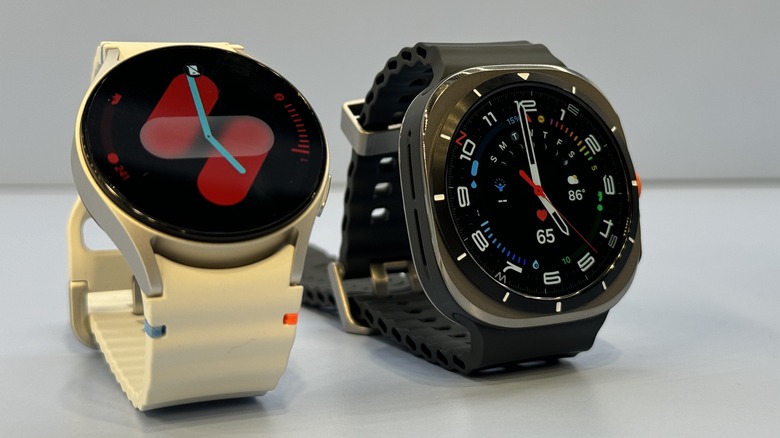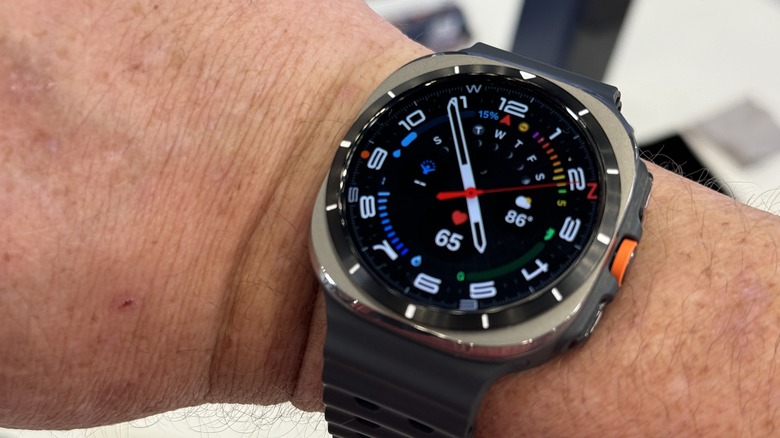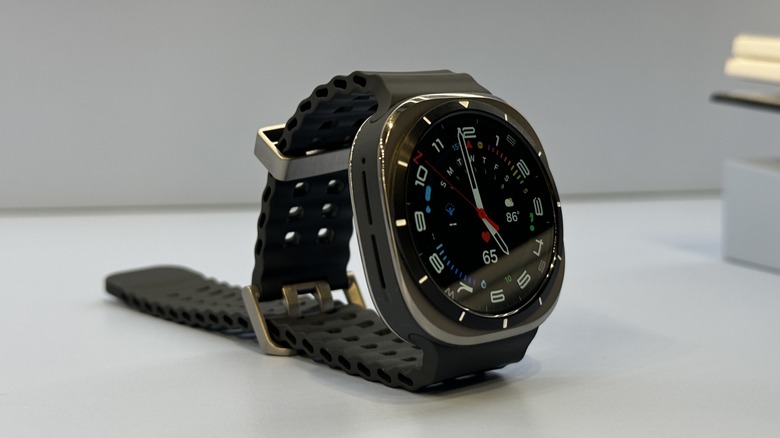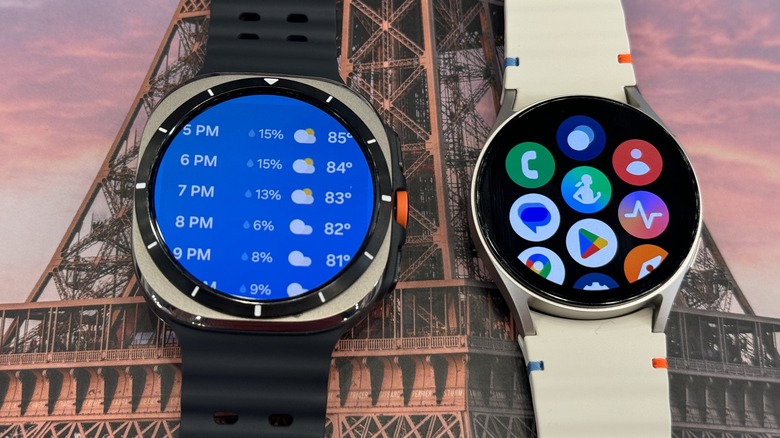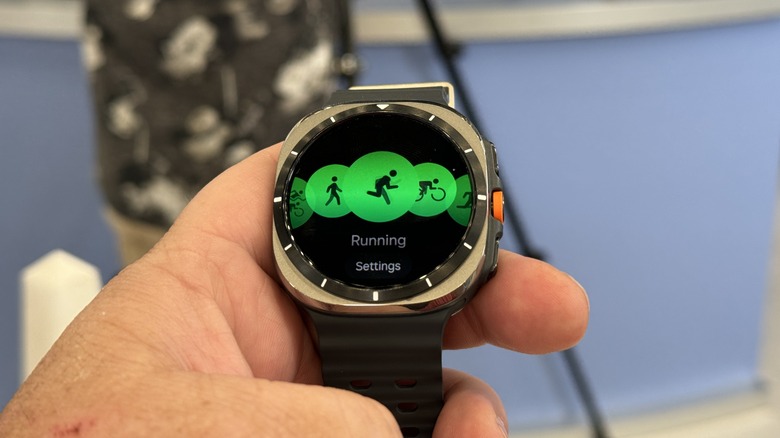Samsung Galaxy Watch 7 And Watch 7 Ultra Hands-On: Do More Sensors Justify An Upgrade?
At Unpacked today, Samsung launched a pair of new watches — the Samsung Galaxy Watch 7 and the Galaxy Watch 7 Ultra. Both are focused on Samsung's continuing evolution into health and fitness and are designed to get even more accuracy, the result of which will be better metrics overall for your health and your sleep.
The Watch 7 is more of an iterative update from the Galaxy Watch 6 of last year, but with one pretty big upgrade. Meanwhile, the Samsung Galaxy Watch 7 Ultra seeks to be the WearOS watch (and the first WearOS 5 watch, by the way) that you'll take with you on your greatest adventures. Of course, if all of this sounds similar to another company that happens to be based in Cupertino, that's because it is. But Samsung has a lot of reasons to bring a heavy-duty watch like this to the table. I've spent time with both watches prior to today's Unpacked announcement, and these are my first impressions.
More sensors are better
The biggest upgrade that both watches have over the Watch 6 is the number of heart sensors in the watch. There are four times more LED sensors in the new generation. This doesn't read more health data, but it makes that data far more accurate. The thing about health data is, if it's not accurate, it's not terribly helpful. Samsung is confident that the additional sensors will help you better understand your health. Its aim is to provide a holistic overview of how you're doing, and to do that, it needs to be as accurate as possible.
Additionally, what's new to the Watch 7 Ultra specifically is sleep apnea detection which has been authorized by the FDA. We have asked Samsung for clarification as to what the difference is between FDA approval and FDA authorization.
The all new Watch 7 Ultra
Speaking of the Watch 7 Ultra, this is Samsung's first crack at an "ultra" watch. The watch is made of titanium and has a water resistance rating down to 330 feet. It also conforms to MIL-STD 810H specifications. Needless to say, it's a tough watch.
It comes with a full 48 hours of battery life, which is fifteen hours longer than we found the Galaxy Watch 6 could last in our battery life testing. That kind of endurance could be key when you're going off the grid for a while. We'll be interested to put that watch through its paces to see how long it can stay off the charger.
Unlike previous Samsung smartwatches, the Galaxy Watch 7 Ultra lacks a rotating crown controller (the sample Samsung had for us to demo would turn, but with no actual functionality, and our review unit's bezel is fixed): It'd be nice if you could use it to scroll through menus or notifications. Also, the Galaxy Watch 7 Ultra also uses a proprietary lug system, so, at least initially, third-party watch bands might be in short supply.
Tracking your activities
Both watches will support up to 100 different workout activities, and you can build workout routines which will combine various exercises together into a single workout. Additionally, Samsung is introducing a new Race feature which will allow you to compete against your past times so you can see how you've progressed (or regressed as the case may be).
You can also do all the same activities you could on previous generations of the watch, including heart rate monitoring, sleep monitoring, ECG, and body composition. Of course, there's AI on board as well. Along with the Samsung Health app, AI can now generate a new Energy Score, which sounds a lot like Garmin's body battery score. It basically tracks your sleep and stress levels and returns a score indicating how ready or not you are to face what's coming in the day. That's a helpful metric that can give you an idea about how you're doing and where you might need to make some changes or make improvements in your routines.
Watch 7 price and availability
Overall, there's not a lot of new here: If you already have the Galaxy Watch 6, the Watch 7 doesn't feel like it's a must-upgrade situation. The sleep tracking and sleep apnea features in general are an interesting addition, and if you happen to suffer from the disorder, this could be a good reason to upgrade. The Watch 7 Ultra on the other hand could be an intriguing proposition if for no better reason than battery life. An additional 15 hours is nothing to sneeze at, though our real-world testing should be able to get you a more accurate number on that.
The Samsung Galaxy Watch 7 comes in two sizes — 40mm and 44mm, which will be available in Green and Cream or Green and Silver respectively. Pricing will start at $299.99. The Samsung Galaxy Watch 7 Ultra will be available in Titanium Gray, Titanium White, and Titanium Silver. Pricing will start at $649.99.
Both watches will be available on Samsung.com, Amazon, Best Buy, and at Samsung experience stores. Preorders start today and will ship on July 24. If you preorder a Galaxy Watch, for a limited time, you will get an additional watch band.
